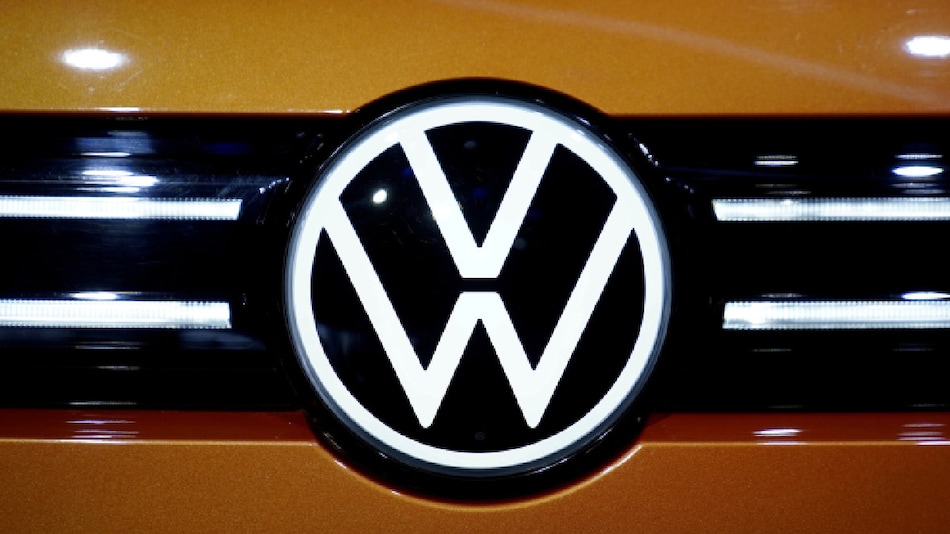- Home
- Transportation
- Transportation News
- Tesla Pushing Volkswagen to Accelerate Electric Vehicle Shift, Company Says on Competition
Tesla Pushing Volkswagen to Accelerate Electric Vehicle Shift, Company Says on Competition
"Tesla is setting new standards for productivity and scale,” said a Volkswagen spokesperson.

Volkswagen's Wolfsburg plant, the world's largest with over 50,000 employees, does not currently make EVs
Competition from new entrants to Germany's autos market such as Tesla has pushed Volkswagen to accelerate plans to transform its main plant towards producing electric vehicles, the company said on Wednesday.
"There is no question that we have to address the competitiveness of our plant in Wolfsburg in view of new market entrants," Volkswagen spokesperson Michael Manske said, pointing to Tesla and new Chinese automakers making inroads into Europe.
"Tesla is setting new standards for productivity and scale in Grunheide," he said, referring to a Tesla factory under construction near Berlin which at peak capacity will produce 5,000 to 10,000 cars a week - over double the entirety of German battery-electric vehicle (EV) production in 2020.
However, the spokesperson denied a report published in German newspaper Handelsblatt on Wednesday which said Volkswagen CEO Herbert Diess told a supervisory board meeting in September that the transition to EVs could cost up to 30,000 jobs at the company.
"A debate is now underway and there are already many good ideas. There are no concrete scenarios," Manske said of the report.
A spokesperson for Volkswagen's workers' council said that while they would not comment on speculation as to whether Diess made the comments, "a reduction of 30,000 jobs is absurd and baseless".
EVs have far fewer parts than an internal combustion engine car and so require fewer workers to produce. According to one estimate, 100,000 jobs in the autos industry could be lost by 2025 as a result of electrification.
German automakers are struggling to catch up with pure-play EV makers' more efficient production platforms. While Volkswagen currently requires around 30 hours to produce its electric ID.3 car, Tesla needs just 10 to make a Model 3.
Diess has previously said Tesla would fuel competition in Germany.
Volkswagen's Wolfsburg plant, the world's largest with over 50,000 employees, does not currently make EVs, but the company plans to produce an electric sedan there from 2026 under a plan entitled "Project Trinity".
The German autos giant is also considering listing its car charging and energy business in addition to existing IPO plans for its battery division, Chief Technology Officer Thomas Schmall told Manager Magazin in an interview published on Wednesday.
Schmall said nothing had been decided yet and it would probably take up to two years before the new companies were established and ready for the stock market.
© Thomson Reuters 2021
Catch the latest from the Consumer Electronics Show on Gadgets 360, at our CES 2025 hub.
Related Stories
- Samsung Galaxy Unpacked 2025
- ChatGPT
- Redmi Note 14 Pro+
- iPhone 16
- Apple Vision Pro
- Oneplus 12
- OnePlus Nord CE 3 Lite 5G
- iPhone 13
- Xiaomi 14 Pro
- Oppo Find N3
- Tecno Spark Go (2023)
- Realme V30
- Best Phones Under 25000
- Samsung Galaxy S24 Series
- Cryptocurrency
- iQoo 12
- Samsung Galaxy S24 Ultra
- Giottus
- Samsung Galaxy Z Flip 5
- Apple 'Scary Fast'
- Housefull 5
- GoPro Hero 12 Black Review
- Invincible Season 2
- JioGlass
- HD Ready TV
- Laptop Under 50000
- Smartwatch Under 10000
- Latest Mobile Phones
- Compare Phones
- Huawei Nova 13i
- Itel A80
- HMD Key
- Redmi Turbo 4
- Vivo Y200+
- Lava Yuva 2 5G
- OnePlus Ace 5
- OnePlus Ace 5 Pro
- Asus Zenbook S 14
- MacBook Pro 16-inch (M4 Max, 2024)
- Honor Pad X9 Pro
- Honor Pad V9
- boAt Enigma Gem
- boAt Enigma Daze
- Sony 65 Inches Ultra HD (4K) LED Smart TV (KD-65X74L)
- TCL 55 Inches Ultra HD (4K) LED Smart TV (55C61B)
- Sony PlayStation 5 Pro
- Sony PlayStation 5 Slim Digital Edition
- Blue Star 1.5 Ton 3 Star Inverter Split AC (IC318DNUHC)
- Blue Star 1.5 Ton 3 Star Inverter Split AC (IA318VKU)

















